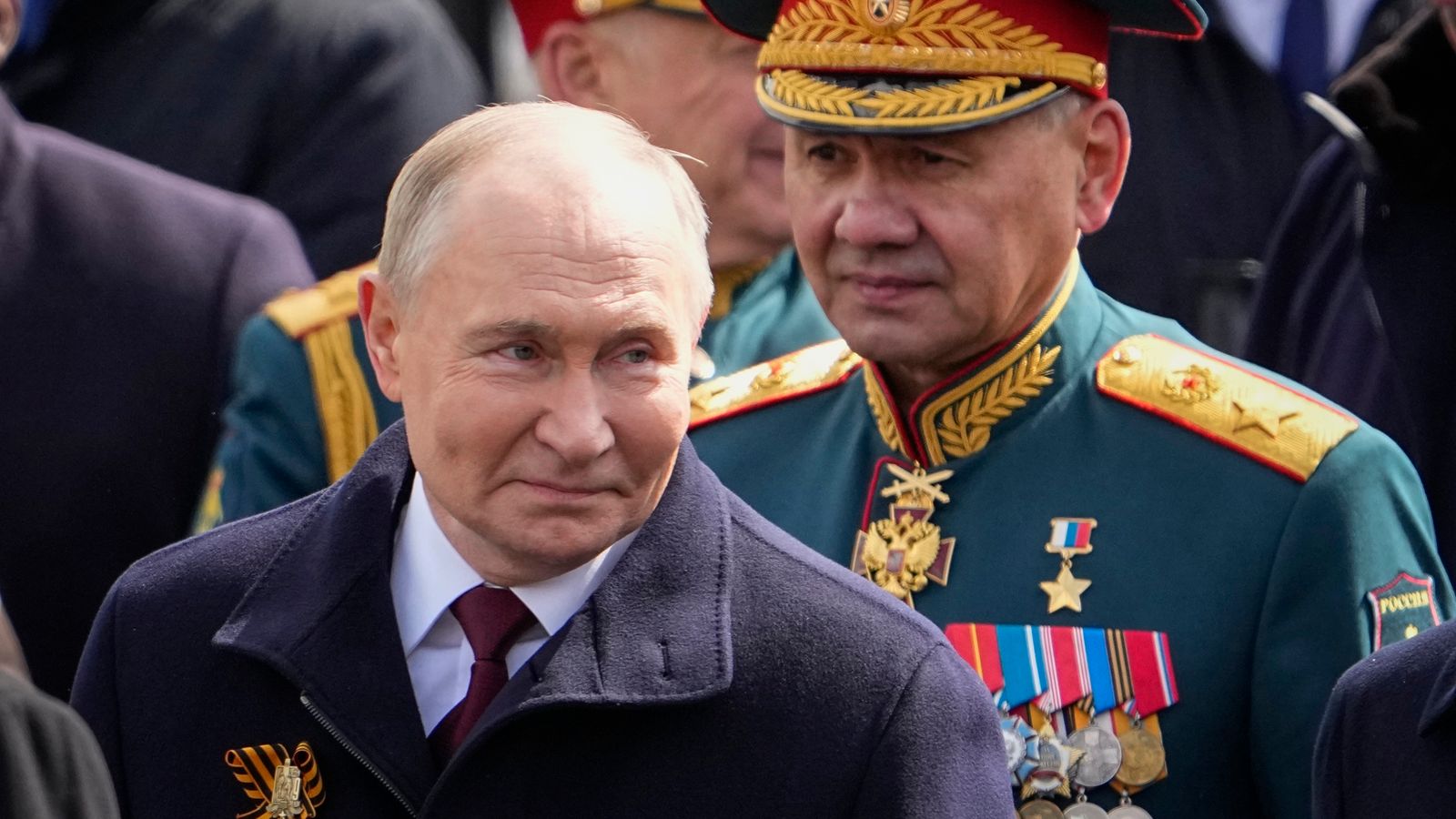Sergei Shoigu, who has served as defence minister since 2012, will be moved to another role as Vladimir Putin makes some changes to his top team. Parliament’s approval of the new appointments are all but guaranteed, as there is virtually no opposition.
…
The shuffle could also be seen as an attempt by Mr Putin to scrutinise defence spending after a Shoigu ally, deputy defence minister Timur Ivanov, was accused by state prosecutors of taking a bribe.
But the changes make sense, Mr Peskov claims, because Russia is approaching a situation like the Soviet Union in the mid-1980s, when the military and law enforcement authorities accounted for 7.4% of spending.
Former MI6 intelligence officer Christopher Steele, who ran the Russia desk between 2006 and 2009, told Sky News he takes Mr Peskov’s words “with a pinch of salt”.
“It seems to me that probably the reason he’s chosen Belousov is because he’s not really any kind of player in the system or any sort of threat to Putin,” he added.
He also said Mr Patrushev’s appointment may hint at instability “right underneath him in the top leadership”.
“It was clear to most of us Russia-watchers for some time that Patrushev was lining up his son, Dmitry, who’s the current agriculture minister, to be Putin’s successor as president,” he said.
This is the best summary I could come up with:
Russian President Vladimir Putin has proposed replacing his long-time ally Sergei Shoigu with civilian and former deputy prime minister Andrei Belousov, who specialises in economics.
Mr Shoigu, who has served as defence minister since 2012, will take up a role as head of the national security council and have responsibilities for the military-industrial complex, the Kremlin said.
Mr Putin’s press secretary Dmitriy Peskov said the president decided the ministry of defence should be headed by a civilian to be “open to innovation and advanced ideas”.
But the changes make sense, Mr Peskov claims, because Russia is approaching a situation like the Soviet Union in the mid-1980s, when the military and law enforcement authorities accounted for 7.4% of spending.
Former MI6 intelligence officer Christopher Steele, who ran the Russia desk between 2006 and 2009, told Sky News he takes Mr Peskov’s words “with a pinch of salt”.
Analysts have said he is looking to project an image of stability and satisfaction with his team’s progress, with Mikhail Mishustin remaining in post as prime minister on Friday.
The original article contains 546 words, the summary contains 175 words. Saved 68%. I’m a bot and I’m open source!



